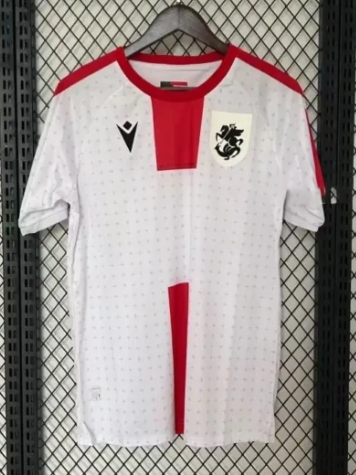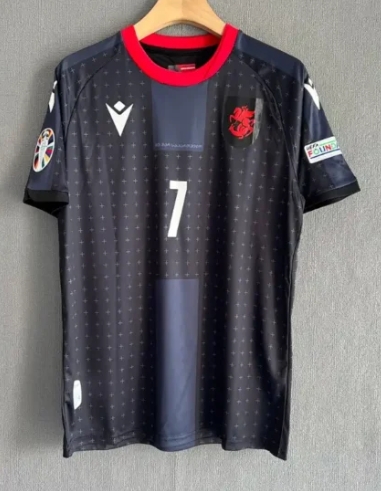Georgia, a nation located at the crossroads of Eastern Europe and Western Asia, has a rich history in soccer that reflects its cultural diversity and fervent passion for the sport. Although the national team, known as "the Wolves," has faced challenges in achieving consistent success on the international stage, it has produced a number of talented players and has a devoted following. This overview will delve into the history of Georgian soccer, its performances in international competitions, and the growth of the sport in the country.
Soccer in Georgia began to gain popularity during the late 19th century. The first football clubs were established in the early 1900s, with Tbilisi, the capital of Georgia, becoming a hub for the sport. Professional leagues began to emerge, and local matches drew enthusiastic crowds, indicating the budding interest in the sport.
In 1921, Georgia became part of the Soviet Union, and the country’s soccer landscape changed dramatically. Georgian players and clubs participated in the Soviet league system, competing at various levels. Despite being overshadowed by more dominant Soviet teams, Georgian clubs like Dinamo Tbilisi gained recognition, achieving national success and contributing to the development of local talent.
With the collapse of the Soviet Union in 1991, Georgia gained independence, leading to the formation of its national soccer team. The Georgian Football Federation (GFF) was re-established in 1990, and the national team played its first official match on April 27, 1994, against Moldova, winning 4-0. This victory was an encouraging start for a new team aiming to make its mark on the international stage.
In the aftermath of the Soviet Union's dissolution, the Georgian national team began competing in various international competitions, participating in qualifying rounds for both the FIFA World Cup and the UEFA European Championship. Throughout the late 1990s and early 2000s, Georgia faced stiff competition but began to develop a reputation for producing skilled players.
Over the years, Georgia has produced numerous talented players who have made significant impacts at both the club and international levels. Among the most prominent are:
Georgi Kinkladze: Considered one of Georgia's greatest players, Kinkladze made a name for himself in the English Premier League during the 1990s and early 2000s, particularly with Manchester City.
Shota Arveladze: A prolific forward, Arveladze enjoyed a successful club career in the Netherlands and Spain, and he earned recognition for his goal-scoring abilities with the national team.
Kakhaber Kaladze: A versatile defender who played for Milan and achieved success in both domestic and international competitions, Kaladze is another notable figure in Georgian football.
Despite these individual talents, Georgia struggled to achieve success in international tournaments. The national team has repeatedly fallen short of qualifying for major competitions, such as the FIFA World Cup and the UEFA European Championship, but they have continued to work toward that goal.
During the early 2000s, the national team was managed by several coaches as they tried to rebuild and refine their playing style. Georgia's participation in the 2002 FIFA World Cup qualifying rounds was marked by competitiveness, as they managed to secure draws against stronger teams and emerged as a challenging opponent. However, they ultimately did not qualify for the tournament.
The 2004 UEFA European Championship qualifiers also displayed moments of promise, especially in matches against more established teams in the region. The national team continued to evolve, with younger players stepping into prominent roles, setting the stage for future successes.
The past decade has seen a resurgence of interest and investment in soccer in Georgia, as soccer academies and club systems have blossomed throughout the nation. The GFF has been working to improve grassroots soccer and nurture young talent to improve the national team’s competitiveness.
In recent years, the team has also benefited from a new generation of players who have gained experience playing in top European leagues. Players such as Levan Mchedlidze, Giorgi Chakvetadze, and Otar Kakabadze have showcased their talents in various clubs across Europe, bringing more visibility to Georgian soccer.
Georgia has also made notable progress in its youth teams, particularly the U21 team. The U21 squad has performed well in European competitions and qualifying rounds, indicating that the foundation for future success is being laid. The emphasis on youth development is critical, as the GFF has launched initiatives to improve training facilities, coaching resources, and competitive opportunities for younger players.
Finland’s national team faced challenges during the qualifiers for the UEFA Euro 2020 tournament. Despite a spirited effort and competitive games, Georgia ultimately fell short of qualification. However, their performances were encouraging
georgia soccer jerseys football YUPOO china B2B2C Wholesale Supplier Branded national georgia soccer jerseys retro shirts, join us on whatsapp | Yupoo fashion national georgia soccer jerseys players jerseys football retro jerseys reseller online store , Yupoo jerseys Replica top version for yupoo wholesale drop shipping jerseys to worldwide.

